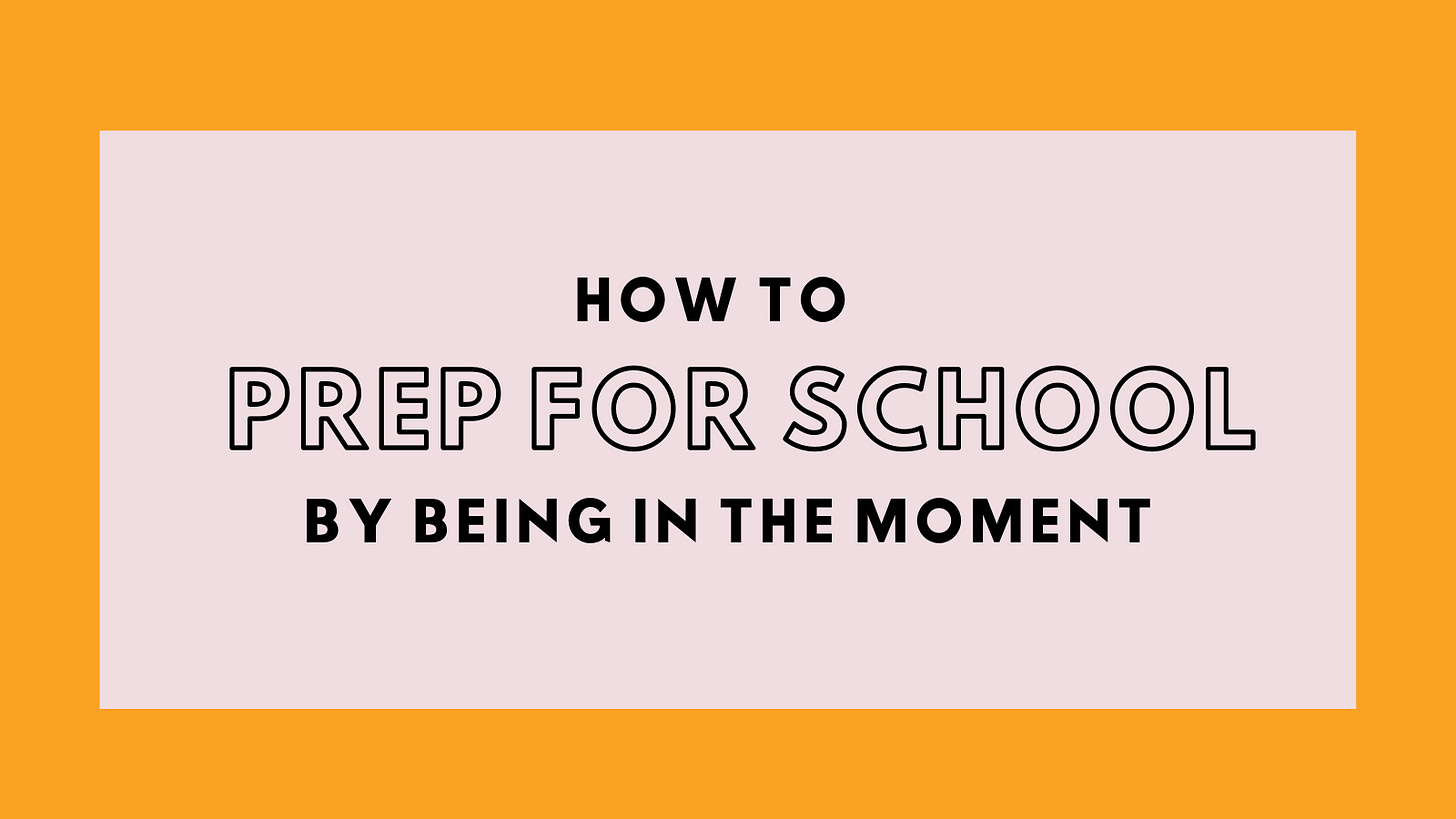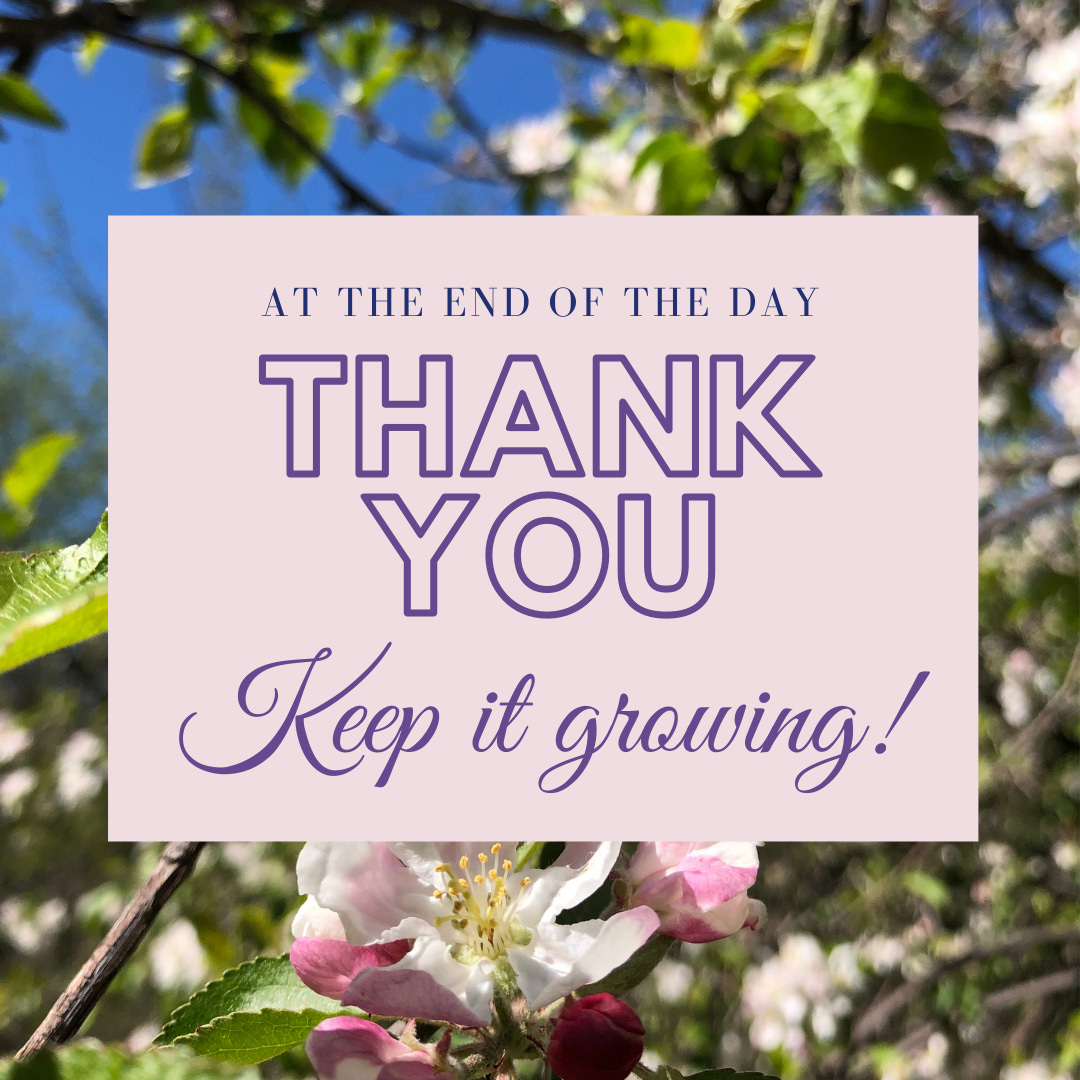How to handle fall 🍂📚
The best prep is to live in the moment
Welcome to At The End Of the Day. I’m Hannah Sung and I write this newsletter for a people-first perspective on the news. Here for the first time? Subscribe! Regular reader? Pay-what-you-wish to support the business and growth of this newsletter.
✨ 🔴 A big welcome to my latest marketing partner, joni! 🔴 ✨
Use discount code ATEOD15 to get 15% off on period care delivered to your door. With every purhcase, joni will donate supplies to people or communities who need them and ATEOD will receive a commission on sales. Read more about why I love this partnership.
I’ve never been down a waterslide until this summer. Yesterday, at a water park with my family, I found myself chasing small, wet children up long flights of stairs, barefoot, then flinging myself down ridiculous slides, over and over again.
Upon arriving, I caught myself thinking, “I should have brought my book.” But by the end of the day, I had surrendered to the moment. I laughed when my inner tube flipped (such an amateur). “Help!” I sheepishly yelped to the teenaged staff when I got stuck in a slow eddy (“Great smile!” she said, as she flung me down the slide. “Huh,” I thought, “I guess I am having a great time”).
Careening down a long twister, I looked up and and marveled, noticing the tall pine trees surrounding me, a wet human being in an old bathing suit and glasses, sliding through the sky.
I am living in the moment. And this moment is summer. I know it won’t last. September is coming.
Last year (please don’t make me think about last year), Ontario had the longest school closures in all of Canada.1
Thinking about school makes me nervous. I’ve previously written about the spectre of hybrid learning. And many others are writing about Ontario’s defunding of education as well as the lack of true change in Ontario’s classrooms, despite a global pandemic (I welcome HEPA filters but please, this is nowhere close to being a real, equitable response to the pandemic or the needs of public education in general).
I’m just not ready to think about September. As Anne Helen Peterson wrote this week in her newsletter Culture Study, we are still exhausted.2
Now, of course I want you to read this whole letter but the TLDR takeaway from my Q&A with Dr. Janine Hubbard (see her brilliance below) is that we need to just stop, be present and connect. We need to do nothing, with others. It’s healing. And if you’re nervous about what school holds in store, me too. But while it’s still summer, I’m taking Dr. Hubbard’s advice to talk, listen, connect and be in the moment.
Where we’ve been
This September, as we cautiously ease out of a one-and-a-half-year-long pandemic, we are heading into a back to school unlike any other. School has changed. We’ve changed too.
Research from Public Health Ontario showed that during the first lockdown, half of caregivers surveyed reported moderate to high levels of concern for managing their children’s remote learning, screen time, and their child’s anxiety and stress.3 And according to a SickKids survey of families during Ontario’s first lockdown, 70 percent of children ages six to 18 and 66 percent of preschool children two to five years old reported deterioration in at least one factor of mental health, including depression, anxiety and irritability.4
Meanwhile, a smaller group, 20 percent of school-age children and 30 percent of preschoolers, actually reported improvement in at least one factor for mental health.
Where we’re going
The specifics of mental health come down to the individual. No one knows this better than Dr. Janine Hubbard, a St. John’s, N.L., psychologist who specializes in working with youth and adolescents.
Hubbard says she saw the “video gamers,” those who were used to socializing at home and online, fare well because their socialization was already online. However, she noticed that children with pre-existing issues, especially anxiety and depression, became higher risk for mental health factors like depression and anxiety due to social isolation.
In the Before Times, back to school was the busiest time of year for Hubbard, when she would be booked solid, providing therapy to children and teens, most of them dealing with anxiety. This year, she is concerned with how kids will readjust to the learning, social, behavioural and emotional demands of the school year, especially given the recent surge in eating disorders, suicide ideation and depression.
I spoke with Hubbard for some much-needed insight (and, let’s face it, reassurance) on how to prep for September and a return to school.
I have kids of my own, and thinking about September, I’m wondering how can we, as parents, support kids heading back to school?
I’m less concerned about academics. I’m worried about the social skills of a lot of our kids. They didn’t get to eat in the lunchroom or hang out in the hallways. They weren’t able to lean over and whisper and chit-chat—all of those subtle nuances help establish or solidify friendships—let alone the kindergarteners who didn’t get to share toys and take turns. So we have groups of kids who are going to need some catch-up in social skills.
How can families help them catch up?
Create more opportunities for informal play. Even if it’s just letting the kids go to the park and hang out, sitting on a picnic bench and talking. That’s what they’ve missed.
You may need to facilitate activities, especially if you’ve got a teen who’s nervous, like, “No, I’m good hanging with the family—I’m happy like this.” You may have to facilitate somebody coming over. Pop some popcorn; put on the movie; set them up with a baking or craft activity.
How can families help if children are nervous?
Ask them what they’re worried about. Don’t make assumptions. Kids constantly surprise us. It may not be, “I’m worrying about academics or health.” It may be, “There was a text chain that involved everybody else in the class, and I wasn’t included.”
Or, for little kids, I know many missed out on orientation sessions, so there are huge unknowns. “What does my classroom look like? What are the chairs like?” There are simple ways to alleviate some of those fears—for example, having a teacher send photos of the classroom. Something as simple as that can help reduce anxiety.
This past year has also been a time of massive racial reckoning, discussing social inequities and colonial violence. It’s pretty traumatic. How can we support our kids who are having an emotional response to learning about the world around them?
First of all, validate. It’s important to be having an emotional response, because that’s how we should be responding.
Talk to them. Say, “How are you feeling? This is how I’m feeling. This is what I do to cope when I’m having these feelings. It’s okay to be sad. It’s okay to be mad.” Then we help them figure out how to cope with it.
Is there anything else we can do to set our kids up for success in September?
The readjustment around sleep and electronics, particularly sleep, is important.
I’m a big fan of having an “electronics bedtime.” Have a central docking system in your kitchen or living room. All the electronics go there an hour before bedtime to charge overnight. No cellphones in the bedroom.
Regular sleep routines and adequate amounts of sleep are essential for children and teens to handle the stress of returning to school. Sleep helps with focus, attention and concentration, and helps regulate mood.
Finally, back to school is a big transition for parents as well. Any advice to help us cope?
Be honest (in age-appropriate ways) with them about your worries. Don’t just dismiss it and say everything will be fine. Connect with school staff if you have worries about how your child will cope with the return. Remind both yourself and your child of all the safety measures you’re both following. Focus on the things you can control, since so much is out of your control. Plan fun family activities for the first day of school, first weekend and later in the fall so everyone has something to look forward to.
An ongoing concern Hubbard has as we tread back into a new normal is that youth who need mental health support may have delayed seeking treatment during the pandemic. If your child needs to connect with mental health services, call Kids Help Phone at 1-800-668-6868.
Every month, At The End Of the Day goes out in tandem with the Best Health newsletter and I love working with them. Here are a few other BH stories you’ll enjoy reading, too.
How to Protect Yourself from Wildfire Smoke in Canada An article that is a sign of the times
Meet Sisters Sage, an Indigenous Wellness Brand Reclaiming Smudging Another amazing women-led business, led by values and connection to culture
What You Need to Know About COVID Variants in Canada Got questions? Find answers
COVID-19 school closures accelerate education inequities in Ontario: U of T researchers, University of Toronto
You’re Still Exhausted, Culture Study newsletter
The Fourth Wave: Child and Family Health and Well-being during the COVID-19 pandemic, Offord Centre for Child Studies
New research reveals impact of COVID-19 pandemic on child and youth mental health, SickKids
Thank you for reading, subscribing and supporting the growth of this newsletter. A side benefit of taking time to rest is the burst of creative energy you can get when you’re not bone-tired. I’m excited for what I’m creating for the fall and I hope you can be part of it! If you’d like to hear an At The End Of the Day podcast and grow this newsletter, become a supporter by paying-what-you-wish. Thank you!
Don’t forget to check out joni and use ATEOD15 to get 15% off your purchase or subscription with a commission of sales going to support this newsletter! ✨✨✨





